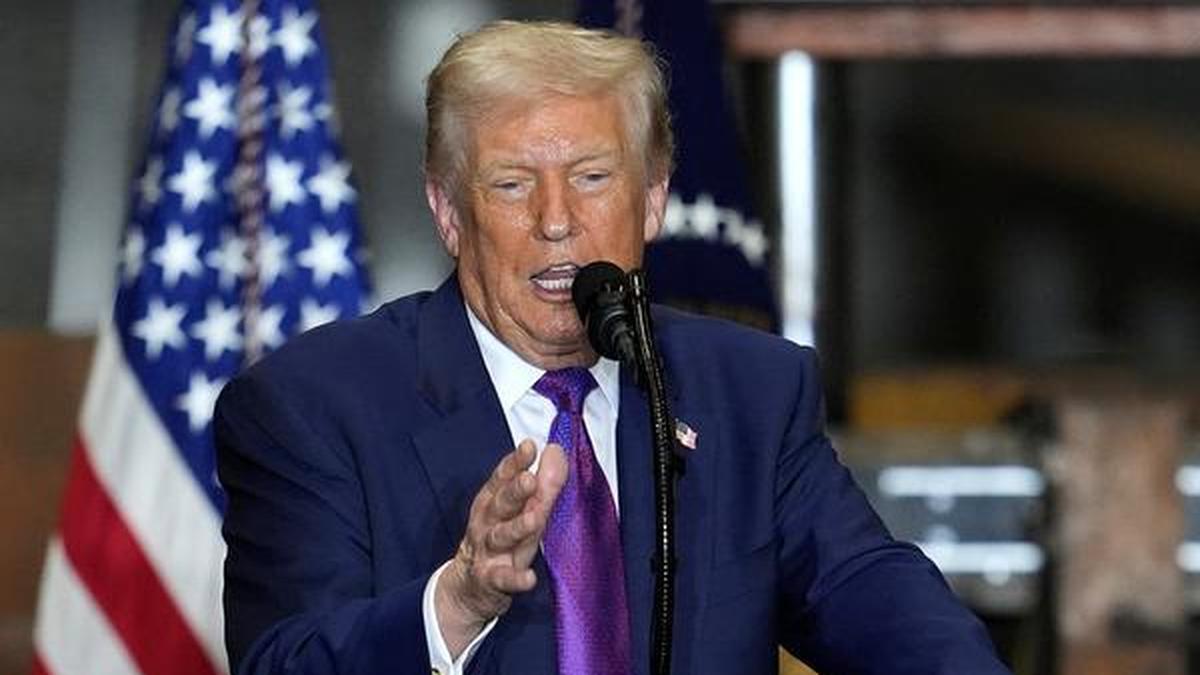- February 20, 2025
Washington and Beijing closer to a ‘possible’ trade deal – The Times of India

US President Donald Trump hinted towards a “possible” trade deal with one of its key targets for tariff policies, China.
Trump told the Air Force One reporters that during his first tenure in 2020, the country had already agreed on what he described as “a great trade deal with China.”
Beijing also urged Washington to handle trade disputes with “mutual respect,” with the Chinese foreign ministry responding on Thursday that both sides should resolve their concerns through “dialogue and consultation based on equality and mutual respect.”
Ministry spokesman Guo Jiakun warned that “trade and tariff wars have no winners and only serve to damage the interests of people all over the world.”
One month since he assumed office, Trump has doubled down on tariffs, targeting not just China but also key trading partners like Canada, Mexico, and the European Union. Earlier this month, he imposed an additional 10 per cent duty on all Chinese imports and is now considering further levies, including a potential 25 per cent tariff on lumber.
Meanwhile, China has also hit back with retaliatory tariffs, slapping 15 per cent duties on US coal and liquefied natural gas, and 10 per cent on oil, agricultural machinery, and vehicles. China’s commerce ministry urged Washington to refrain from using tariffs as a “tool for coercion.”
However, experts warned that in such a trade war, it is usually the US which has to bear the cost of tariffs.
The US President said, “there’s a little bit of competitiveness, but the relationship I have with President Xi (Jinping) is, I would say, a great one,” He further revealed that Xi, along with the leaders of France and Britain, could soon visit Washington for talks.
Trump’s aggressive tariff strategy has sent shockwaves across global markets. Japan, which has a major auto industry stake in the US, has formally requested relief from the 25 per cent steel and aluminium tariffs set to take effect on 12 March. Japanese trade minister Yoji Muto is expected to visit Washington to call for an exemption, according to Japanese media reports.
In Europe, the EU has warned of a firm response if Washington imposes tariffs on its goods.
European Commission vice president Maros Sefcovic dismissed Trump’s claims of unfair trade ties, calling US-EU relations a “win-win partnership.” However, he also signalled the Union’s willingness to negotiate, suggesting potential reductions or eliminations of tariffs on industrial products, including automobiles.
Within the EU, Germany remains the biggest trade surplus holder with the US, largely due to its thriving automobile and chemical industries, according to Eurostat.
Reducing deficit
Trump’s tariff push is part of his broader plans to reduce the US trade deficit. In 2024, the country’s largest trade surplus stood at $295.4 billion with China, according to the Bureau of Economic Analysis.
However, economic experts warn that tariffs often result in higher costs for American consumers rather than punishing foreign exporters.
As the standoff continues, markets remain on edge, with global leaders bracing for what could be a turbulent period in international trade.







